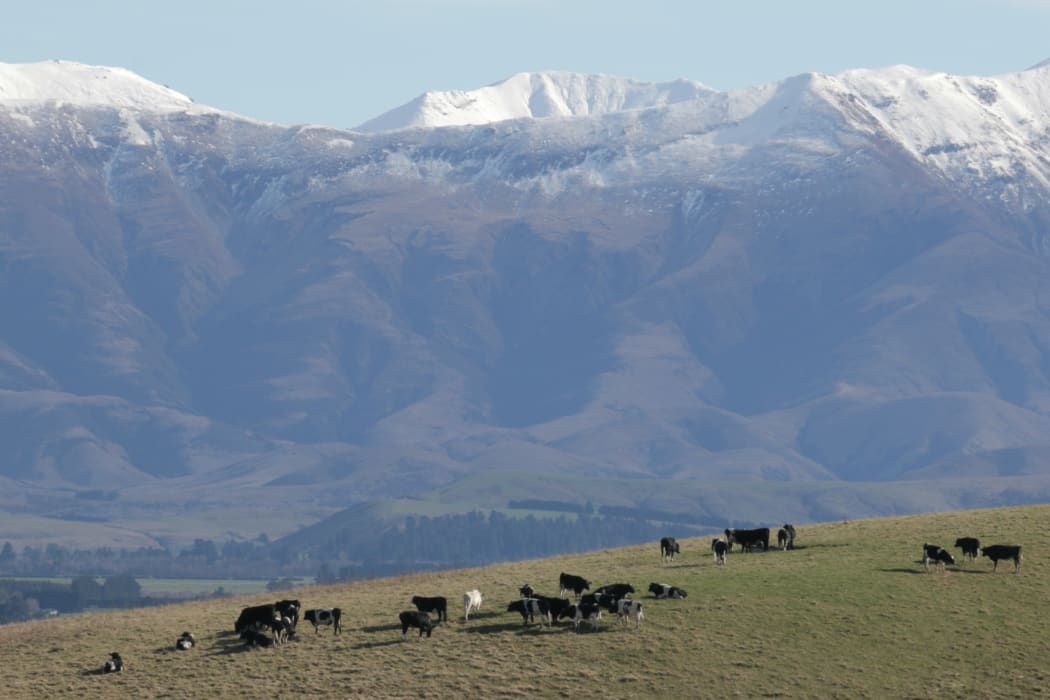
Photo: RNZ/Cosmo Kentish-Barnes
Northland's bordering on dry for the time of the year. Stock are coming onto a spring market early - animals were held back because of poor grass growth in autumn, but people are prepared to top up numbers now that grass growth has picked up. Prices for store stock and those going to the works are strong. Prime cattle are fetching six-dollars a kilogram and about $1200-1400 for heifers and $1600 to $1800 for steers.
Pukekohe has had mild, sunny, calm days this week. Winter seems to have taken a holiday. Outdoor vegetable growers have been able to do whatever was necessary on the land. Some have been busy planting and fertilising crops. Fields of early potatoes are showing vigorous top growth due to the absence of cold and strong winds normally expected this time of year.
Waikato had good weather for the start of calving. Grass has been growing at 40-kilograms of dry matter per-hectare per-day - which is unheard of for July. Usually at this time of year dairy cows are eating grass, as well as between 3 to 5 kilograms of supplementary feed a day, but some farmers are taking supplements out of their diet and they're saving them for later. Farmers are increasingly getting Warrants of fitness for their effluent systems on farms. It's not compulsory, but dairy companies are pushing for them. Consultants come onto farms to make sure they are 100-percent compliant.
In Bay of Plenty Zespir held its AGM on Wednesday. It was a pretty quiet affair which would indicate growers are content. The Chairman's address focused on sustainability as it is important to Zespris' customers. On orchards there are a lot of productive canes to tie down on gold vines so growers are hoping for a good crop.
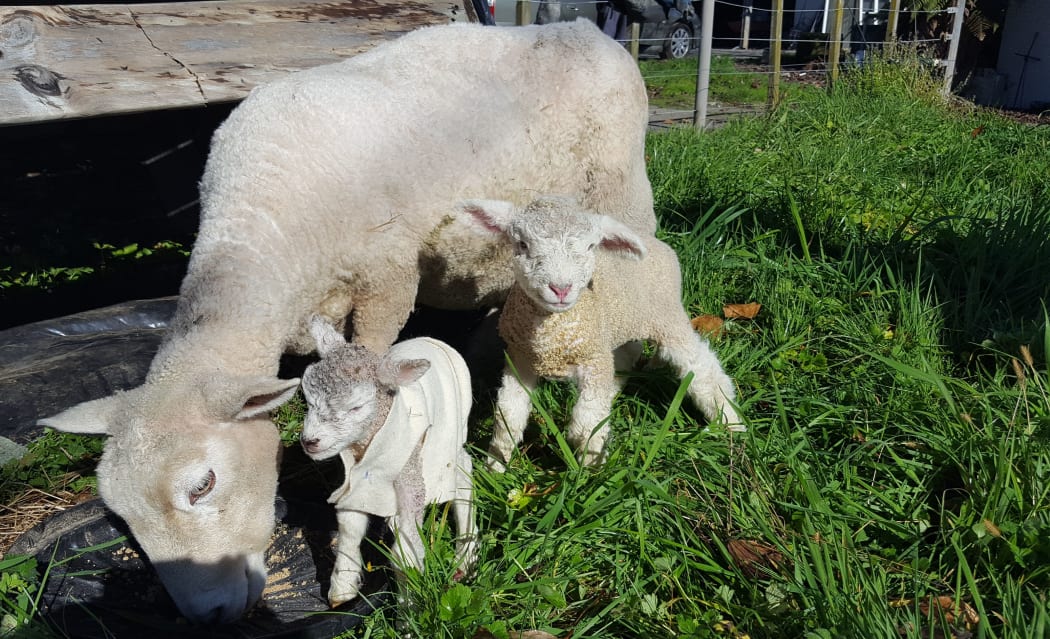
Photo: Susan Murray
King Country farms could do with a bit more grass. It's green but we're told it doesn't have a lot of 'guts' to it. It's been a fine week but there have been days when the fog didn't lift until lunchtime. Farmers are spreading out ewes into lambing paddocks and are inoculating them before lambing, that gives lambs protection too. The vaccine covers Pulpy Kidney, Malignant Oedema, Tetanus, Black Disease and Blackleg.
Taranaki has also been warm with some fog and rain. There is a bit of mud about, but not as much as the province often sees in winter.
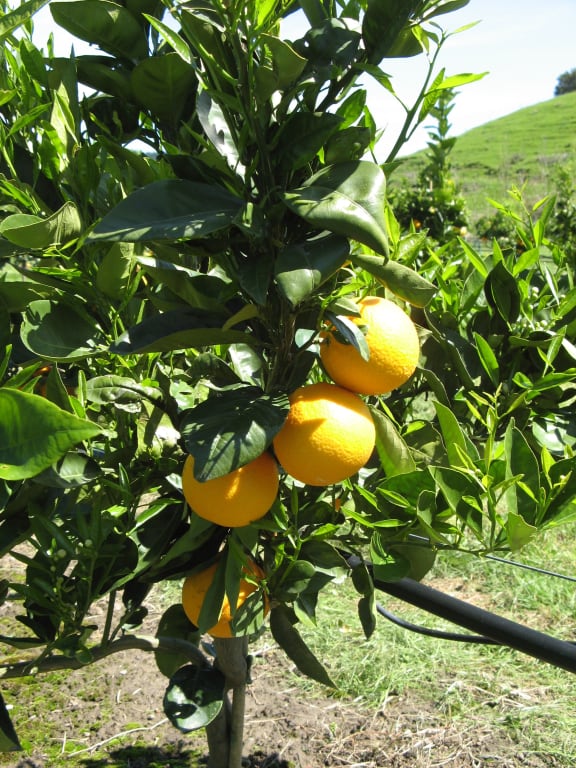
Photo: Susan Murray
East Coast's farmers have been thrilled ot have had a bit of rain this week. The ground feels soaked but year to date there's been less rain than usual. Lambs are hitting the ground now in warm conditions. Forestry is still pumping away, this week one ship was being loaded and three more were waiting out in the harbour to come into port. Crop growers will be struggling a bit with cultivation in muddy conditions. Gisborne's navel orange harvest is cranking up.
Hawkes Bay has also had fog and very mild conditions which is helping the grass grow and the weeds germinate. Pruning in vineyards is 40-percent through. Grape growers are looking for a lift in prices from wineries this year. The grower we speak to says the increase in the minimum wage will cost him between $10,000 and $20,000 thousand. He says some vineyards with deeper soils have been sold and the vines are being pulled out and replaced with apple trees. For the past 10-15 years they've produced grapes suitable for commercial wines but not high quality, reserve grade fruit. The developers of the new apple orchards are using the grape infrastructure - they're planting dwarf root stock close together and will stretch the branches out along wires.
Up until this week Manawatu farmers had been a bit down in the mouth because of cold, soggy conditions but they've been buoyed by warmth and sunshine. It almost feels like spring. Dairy herds are calving. Sheep and beef farmers are happy to see a lift in grass growth and and are looking forward to good prices.
Horowhenua vegetable growers can get onto their fields again. They've had some good drying weather. They are harvesting broccoli, cauliflower, celery and leeks.
Wairapara's been wet which is pleasing. Warm temperatures are helping grass growth and prices are looking pretty good so farmers are happy, but we're told if they turn their thoughts to politics - the Emissions Trading Scheme, Zero Carbon Bill and climate change that brings on a headache. Anyone lambing in this weather will be very happy. Early lambs are well through, but other Wairarapa properties are yet to start. There's a little mud about, just enough so farmers don't have to worry about it getting too dry.
Across Cook Strait and pruning's going well in the Nelson/Motueka region despite a bit of rain this week. Most growers are over the half way point for apples and kiwifruit orchards. Kiwifruit harvested this year continues to be shipped out. About 20 percent remains in local cool stores and quality's holding up well.
A farmer in Marlborough's had 125 millimetres of rain in the gauge in the past two weeks. Soil temperatures are at 6 degrees and rising thanks to the unusually mild night and day temperatures, so some good grass is expected soon will set things up nicely for spring. Lambing's begun on the east coast and in the north of the province. Ewes with twins are being break fed behind hot wires. Ditto for yearlings and two year old cattle. In vineyards, pruning and trellis maintenance is in full swing. Out contact's farm overlooks a vineyard and he says while he's moving his animals on the hills he can hear the RSE workers singing in harmony as they prune in the distance.
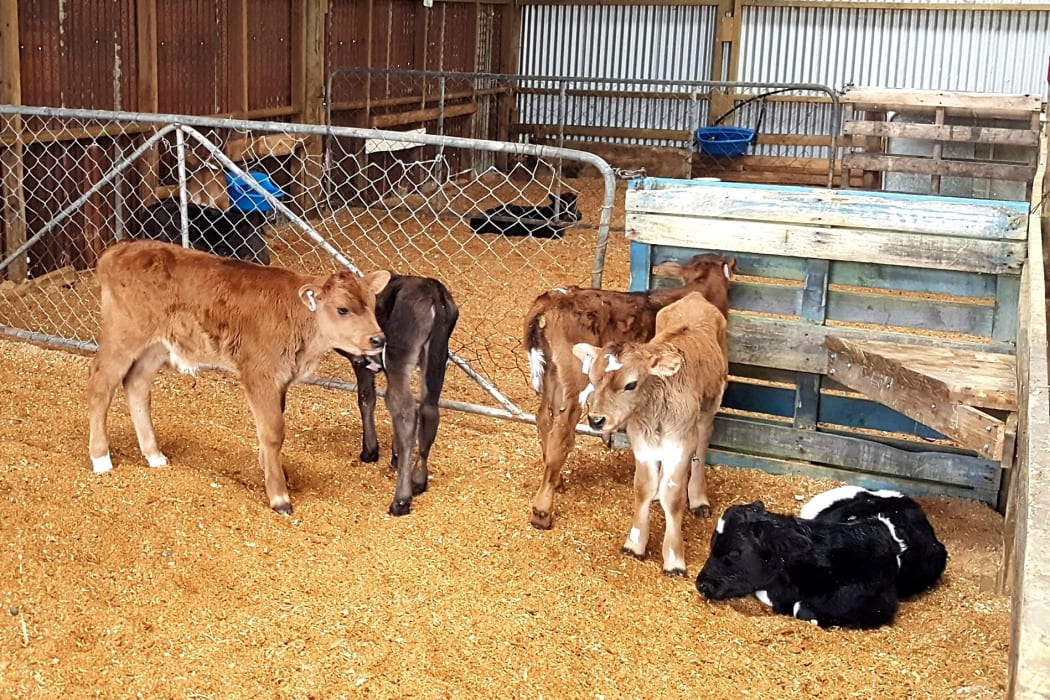
Photo: RNZ/Cosmo Kentish-Barnes
Milk tankers are back on the road on the West Coast. not many mind you, but a sign the new season's getting underway. A dairy farmer are Rununga says calving's started early, this has been happening for several years now and he thinks it could be something to do with shorter gestation genetics slowly creeping into the national herd. It's not a problem though, unless the cow is away on winter grazing! Conditions have been settled and mild and the ground's firmed up enough to apply nitrogen onto paddocks.
Agricultural work has ground to a halt this week while farmers wait for things to dry out in Canterbury. Everyone's busy planning and budgeting for the year ahead. Our contact, who farms at Hororata, says indications at this stage are that things will remain tight on farm, particularly given the seemingly constant cost increases that he says are coming from Wellington at the moment.
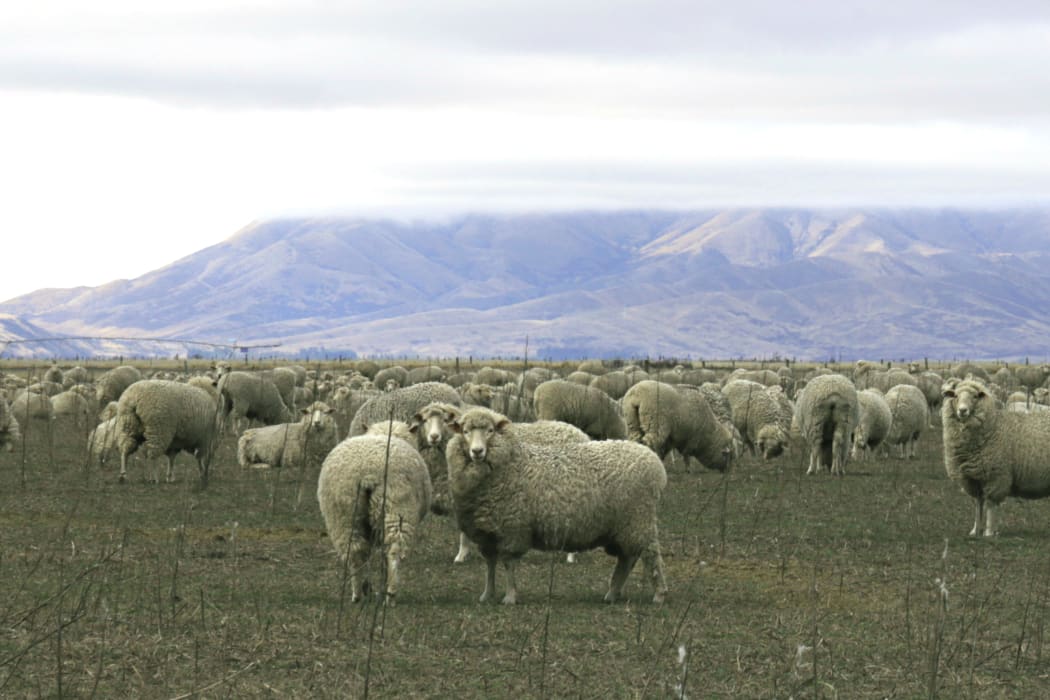
Photo: RNZ/Cosmo Kentish-Barnes
South Otago's lacking moisture after missing out on last week's rain storms. Feed covers are pretty good though, winter feed utilisation has been tremendous and no mud's been made by stock. The sheep and beef farmer we spoke to in Balclutha says that should keep animal welfare campaigners happpy ... he's seen people in helicopter going over his farm taking photographs. His scanning results are the worst ever, back 10 percent on last year and that wasn't a flash year either. He's blaming the very dry summer conditions. .
Like on the West Coast, it's been mild in Southland. There's heaps of grass around and calves have started coming early which has caught a few people off guard.

